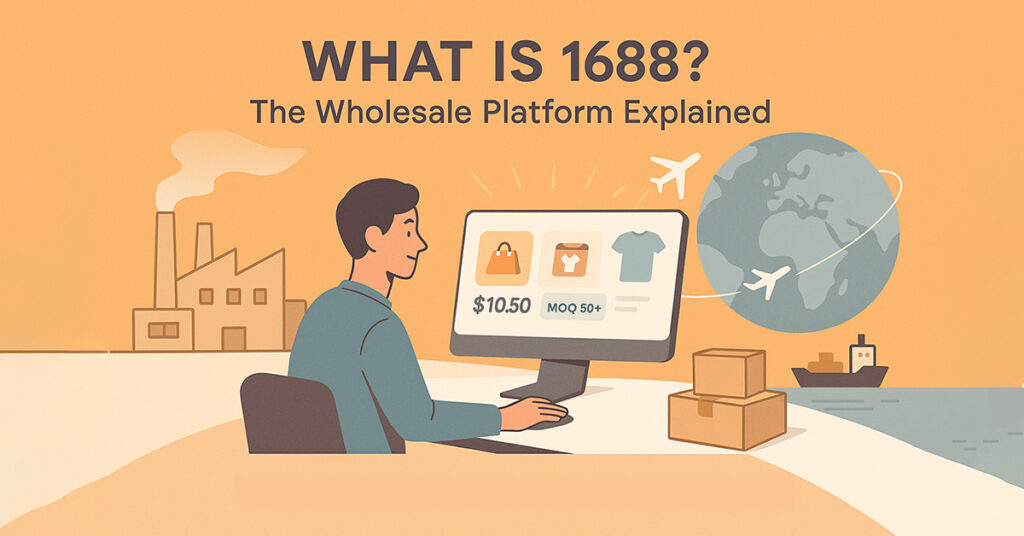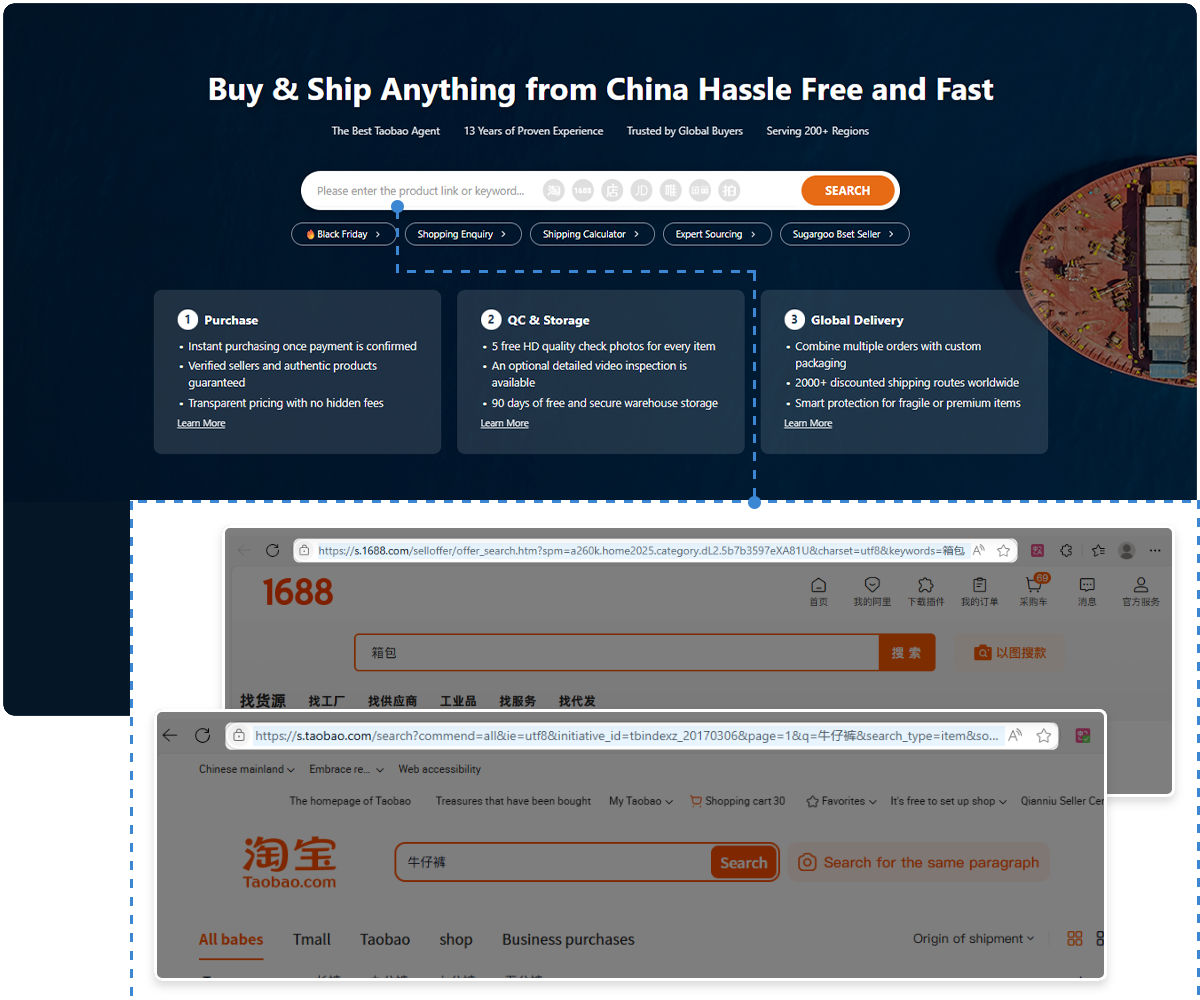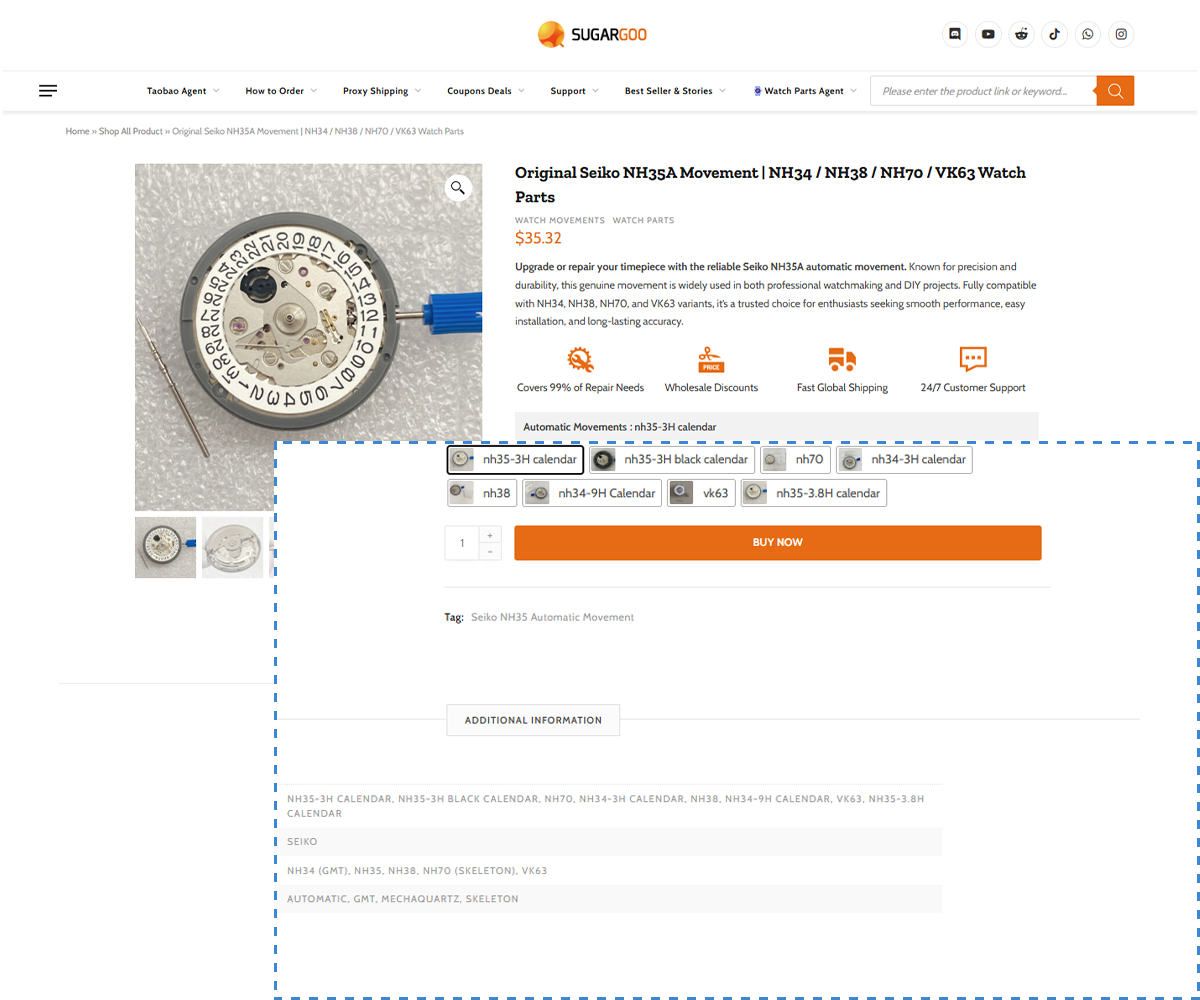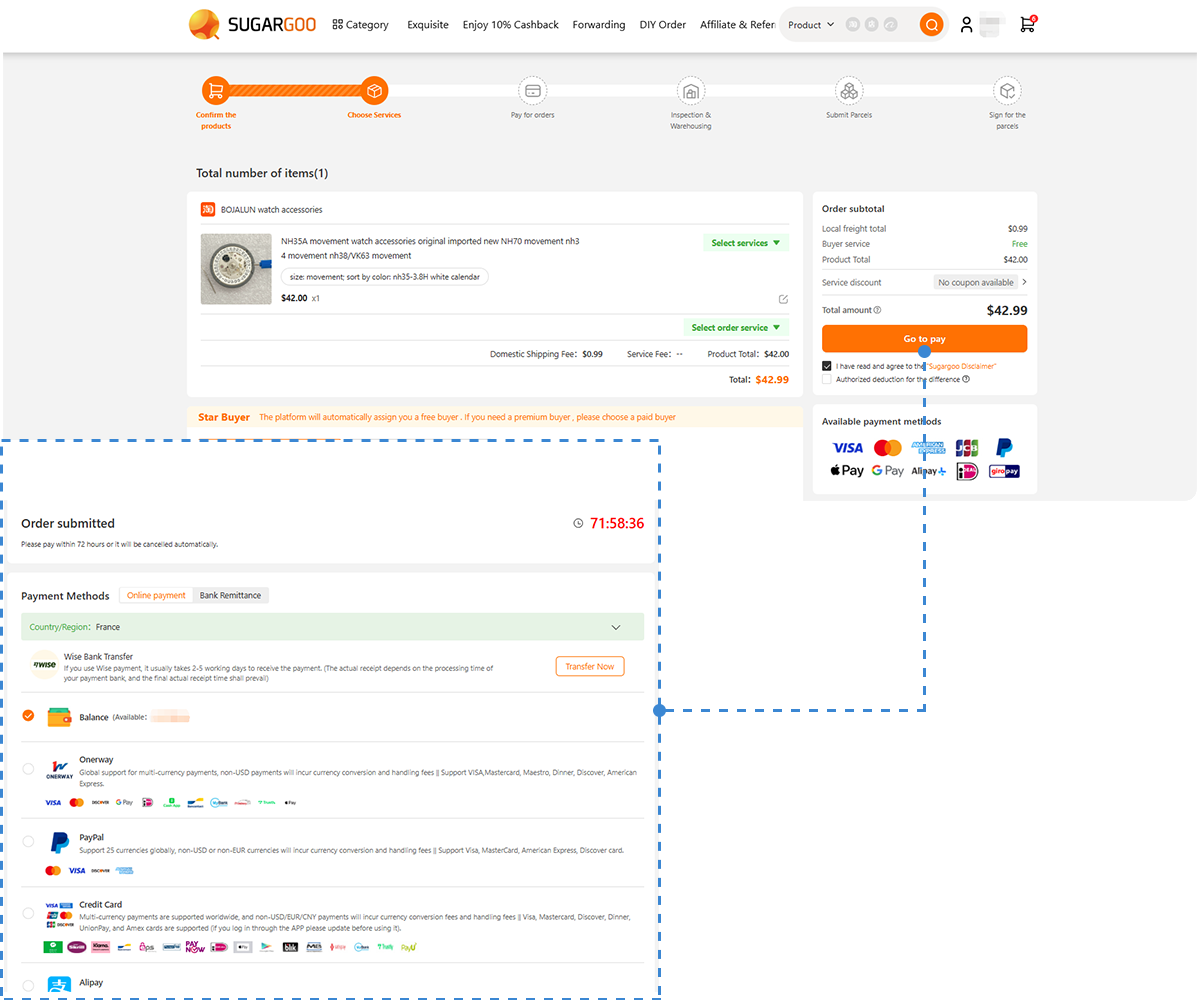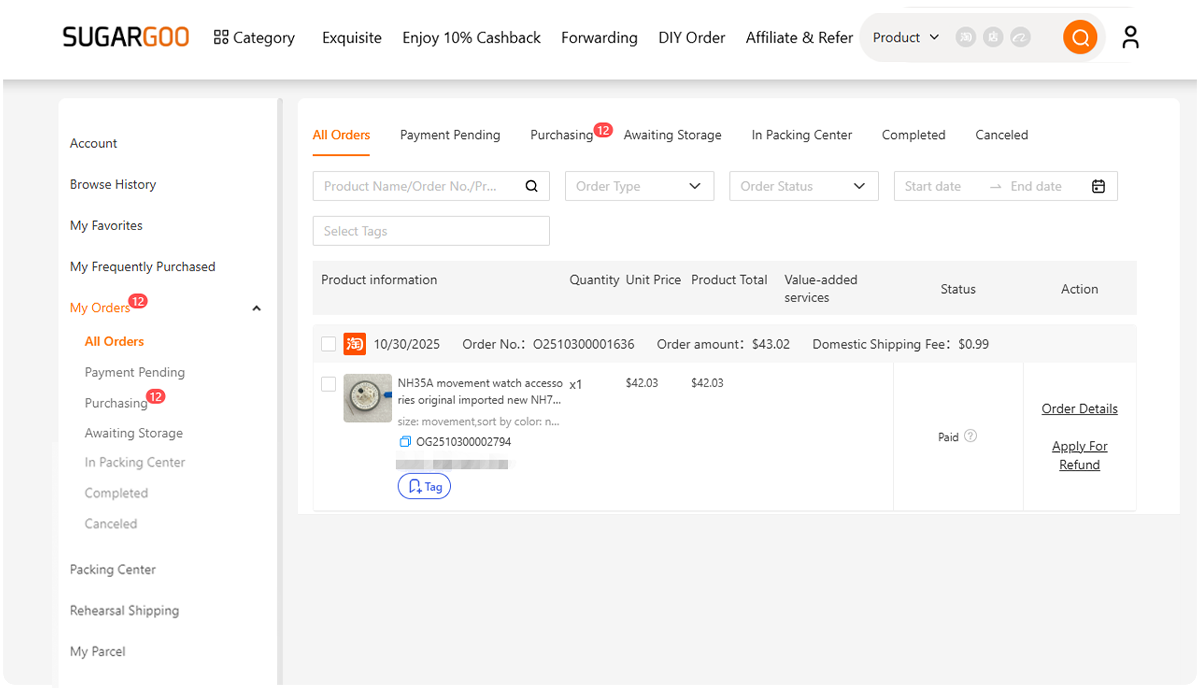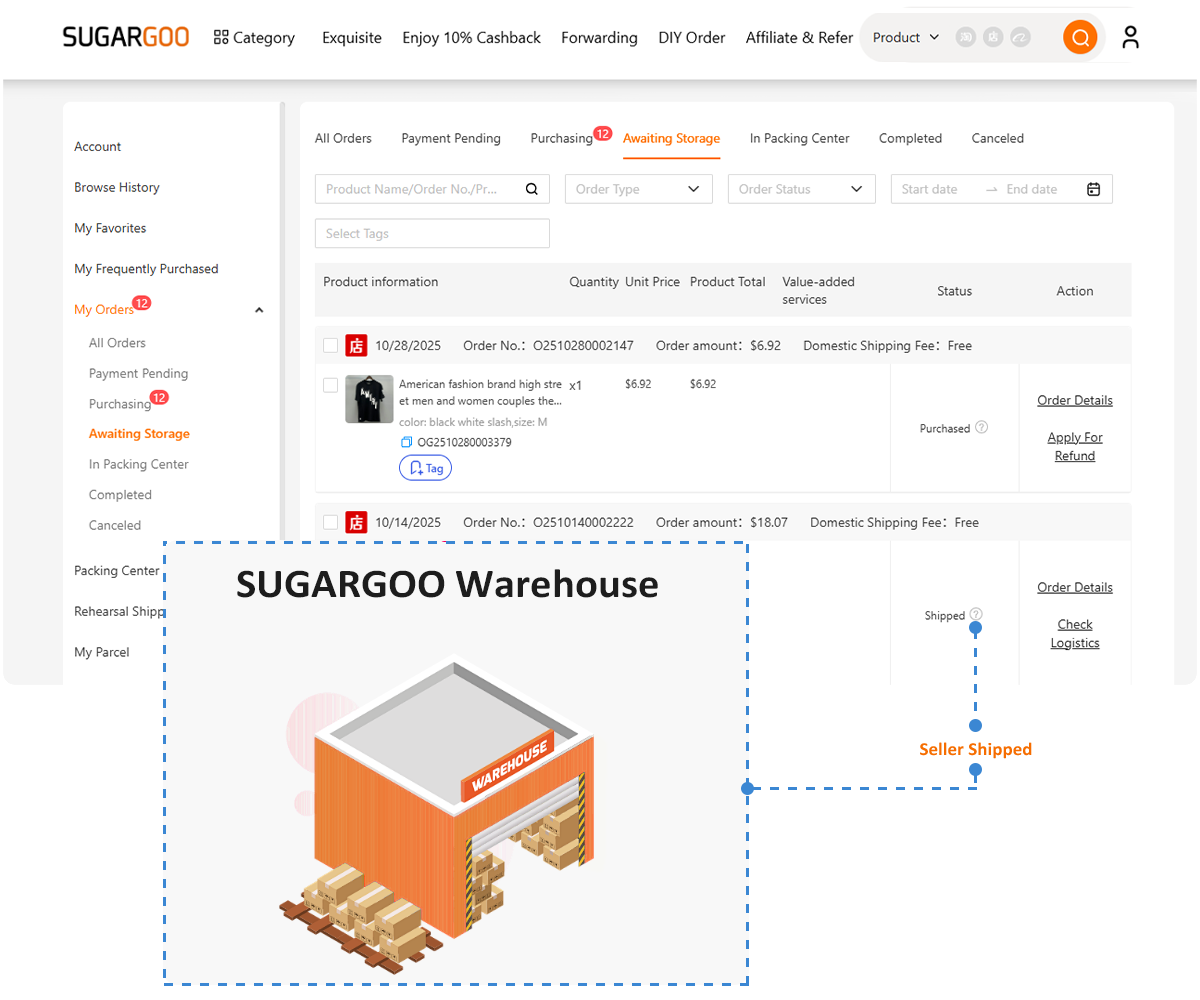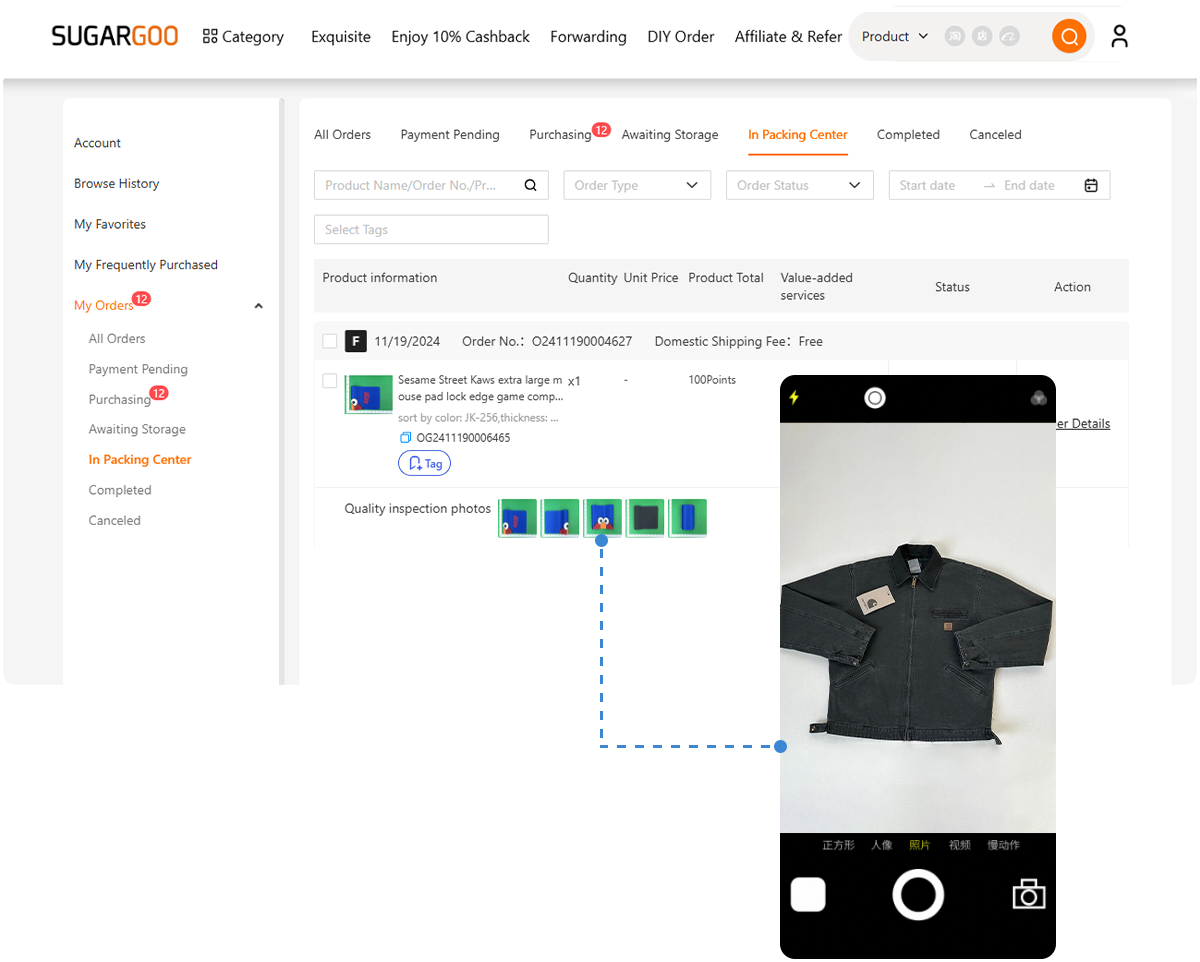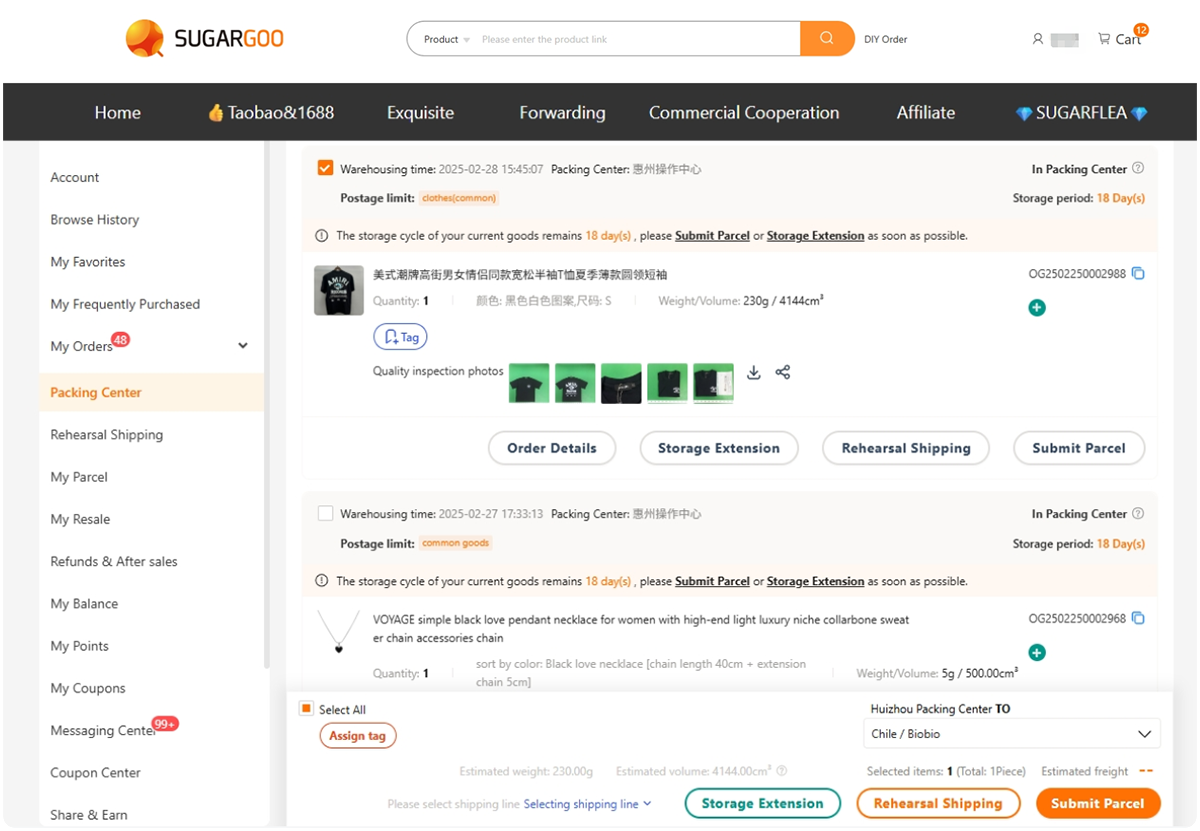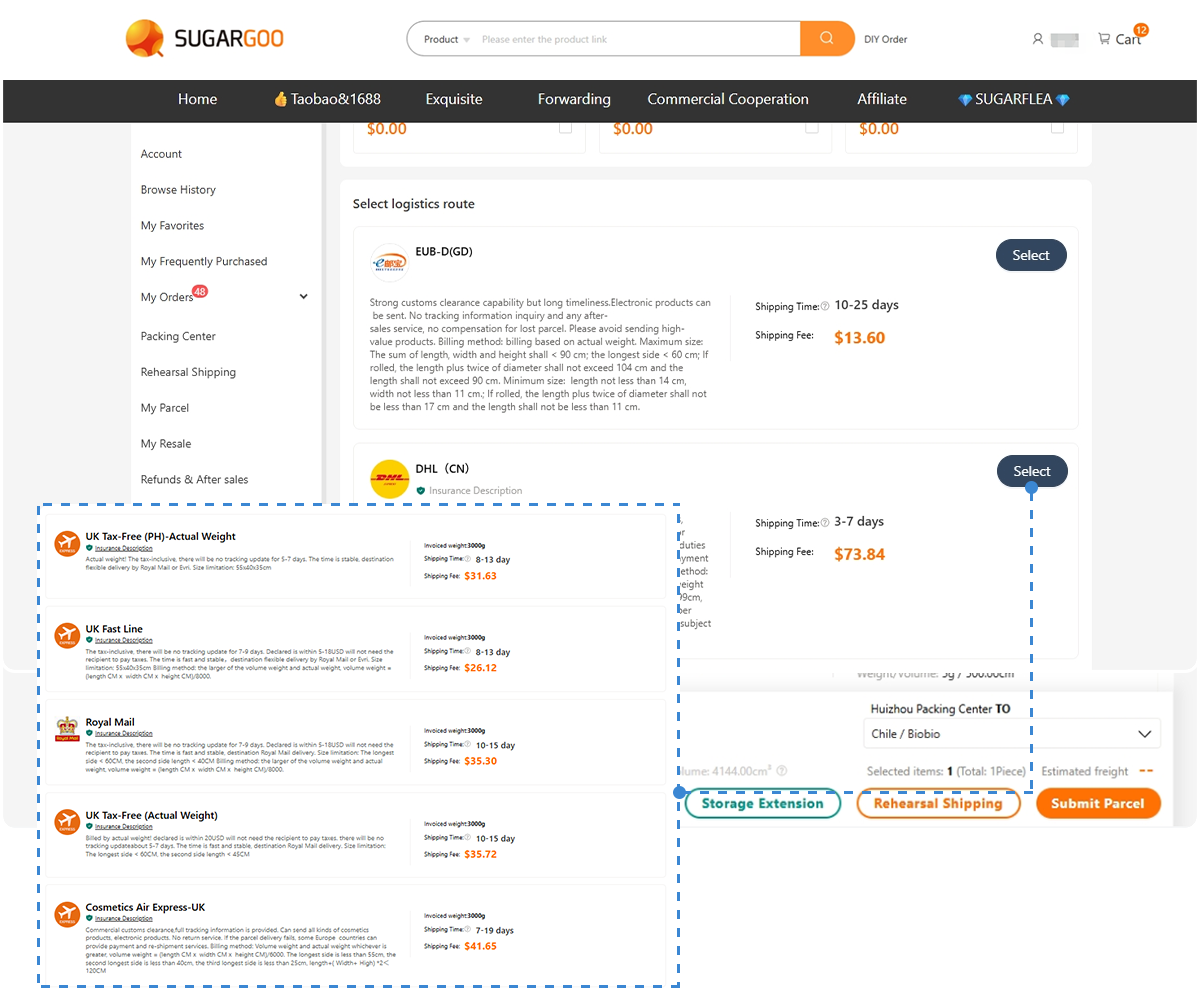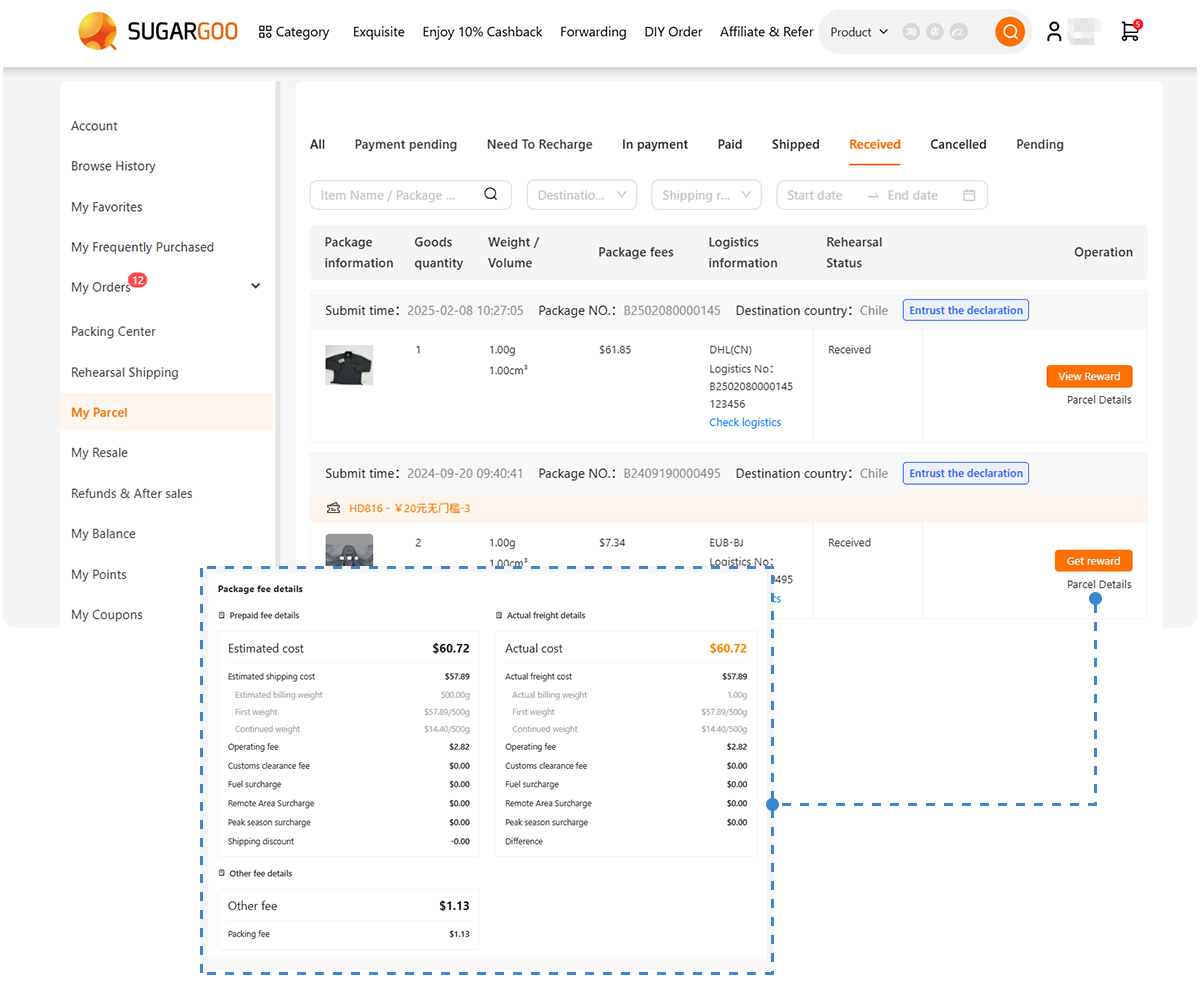Have you ever stumbled across 1688 while researching Chinese suppliers and thought, “Is this another Taobao or something else entirely?” For locals, it’s the go-to platform for stocking stores. For global entrepreneurs, it often feels like a hidden doorway to China’s factories.
But what exactly is 1688? Can someone outside China actually use it? And why do so many small businesses around the world buy from 1688 when sourcing products? This article explains what 1688 is, why it matters, and how you can buy from China through this platform—even without speaking Mandarin or having a Chinese bank account.
Understanding 1688: What It Is and Who Uses It
1688 is Alibaba’s domestic wholesale marketplace, launched in 1999, and one of the earliest pieces of the Alibaba ecosystem. While Taobao serves individual consumers, 1688 is built for businesses—shopkeepers, wholesalers, and resellers.
The platform works primarily on a B2B model. Sellers are typically factories or distributors who sell goods in bulk at discounted unit prices. Unlike Taobao or Tmall, you won’t often find one-off purchases here. Most listings come with a minimum order quantity (MOQ), such as 50 pieces of clothing or 100 units of packaging supplies.
To put it simply: Taobao is for buying one pair of shoes, 1688 is for ordering 200 pairs at factory rates. Want to see how it stacks up against other platforms? Check our comparison of major Chinese marketplaces.
From 1999 to Today: A Short History of 1688
Alibaba launched 1688 as its first online marketplace, well before Taobao existed. The goal? To connect China’s manufacturers directly with domestic wholesalers. The name itself—“1688”—sounds like yī lù fā fā in Mandarin, which roughly means “prosperity all the way.”
Originally, it functioned as an online directory where factories listed products for bulk buyers. Over the years, Alibaba turned it into a transaction-ready platform with built-in payments and logistics. Today, it’s the backbone of China’s wholesale industry. Many items that end up on Amazon, eBay, or even Taobao first appear on 1688.
How the 1688 Platform Operates
Unlike consumer-focused sites, 1688 revolves around bulk transactions. Here’s what makes it unique:
- MOQ requirements: Most listings require bulk orders. You might see “50 units minimum” or “100 units minimum.”
- Tiered discounts: Buy more, pay less per unit. Prices often drop significantly at higher quantities.
- Factory-direct access: Many sellers are actual manufacturers, not middlemen.
But here’s the challenge—1688 is built for Chinese buyers. Payment methods are local (Alipay, bank transfer), the entire interface is in Mandarin, and sellers typically don’t ship internationally. For outsiders, it’s almost impossible to use without help.
1688 vs Taobao vs Alibaba.com
Confused by all the Alibaba platforms? Here’s how they differ:
- 1688: Focused on China’s domestic wholesale market. Cheapest unit prices, but high MOQs.
- Taobao: Consumer marketplace. Perfect for small-quantity, trend-driven shopping.
- Alibaba.com: International-facing. Sellers list with English support, but prices are usually higher than 1688 since they expect export costs.
In short:
- Buy one? → Use Taobao.
- Buy in bulk for resale? → Use 1688.
- Need English support and export-ready sellers? → Use Alibaba.com.
For entrepreneurs deciding between them, here’s a guide for sourcing as a business.
Why 1688 Attracts Global Buyers
Why would someone overseas bother to figure out 1688? The answer is simple: price, variety, and speed to trend.
- Lowest possible prices: Because you’re buying near the source, the cost per unit is often unbeatable.
- Massive product scope: From textiles and electronics to industrial tools and packaging, the range is staggering.
- Trendspotting: Many viral products you see abroad (on Amazon or TikTok) first gained traction on 1688.
For anyone serious about reselling, 1688 is often the secret weapon.
The Difficulties of Using 1688 Overseas
As promising as it sounds, 1688 has major obstacles for international buyers:
- Mandarin-only interface: No built-in English version.
- Payment restrictions: No Visa—only local options like Alipay.
- Domestic-only shipping: Most sellers won’t ship outside China.
- MOQ pressure: Not suitable if you just want to test one or two items.
- Registration issues: May ask for a Chinese phone number.
In short, if you try to order directly, you’ll probably get stuck. That’s where a 1688 agent comes in.
Working with a 1688 Agent
A 1688 agent acts as your partner, handling all the tricky parts—payments, translations, warehouse storage, and international shipping. Here’s the flow:
- Find the product: Browse 1688, copy the link. Need help searching effectively? See our product search guide.
- Paste into the agent site: Sugargoo, for example, pulls up the item with English details. Unsure how to read translated product info like sizing or specifications? Here’s a product listing guide to help.
- Place your order & pay: Choose the product options and pay with credit card. For all options, check payment breakdown. And if you’re new to the process, here’s a complete payment tutorial.
- Warehouse inspection: Once received, the agent uploads QC photos. Always review these QC service.
- Consolidate orders: Bundle multiple purchases to cut shipping costs (parcel merging guide).
- Choose delivery: Pick between courier, air, or sea freight. Need help? See international shipping explained. And don’t forget taxes—review customs & import rules.
This setup finally makes it possible to buy from 1688 without Chinese banking, shipping, or language headaches.
What Products Are Common on 1688?
The selection is massive, but here are some popular categories:
- Clothing & Textiles: Wholesale T-shirts, uniforms, fabrics, accessories.
- Electronics & Components: Phone cases, cables, LED lights, parts.
- Packaging & Printing: Boxes, bags, labels, custom designs.
- Home & Kitchen: Cookware, furniture, household gadgets.
- Industrial Supplies: Tools, raw materials, machinery parts.
For shop owners, it’s like walking through a virtual trade fair.
Smart Advice for First-Time 1688 Users
Before diving in, here are tips that can save you time and money:
- Expect bulk orders: MOQs are the norm.
- Use an agent for support: Without one, you can’t pay or ship easily (what an Taobao agent does).
- Always check QC photos: Don’t ship without reviewing them.
- Consolidate to save: Combine items into one parcel to cut costs (parcel consolidation).
- Estimate costs upfront: Use a shipping fee calculator.
- Leverage coupons & points: New users get an 800 CNY coupon; pair it with points for extra savings. See shipping savings tips.
- Know customs rules: Research taxes before shipping (duty-free thresholds).
- Get help when stuck: Sugargoo has English-speaking support—contact them here.
How 1688 Influences Global E-Commerce
Many of the goods fueling global e-commerce—Amazon bestsellers, TikTok fads, mall products—can trace their roots back to 1688. The platform quietly powers much of the global buy from China movement.
For small businesses, this means opportunity. By sourcing directly from 1688, you’re closer to the supply chain than competitors who buy from middlemen.
Taking Your First Step on 1688
So, what is 1688? It’s China’s largest wholesale marketplace, the backbone behind countless stores worldwide. For domestic shopkeepers, it’s where they refill inventory. For you, it could be the launchpad of a business or a cost-cutting sourcing strategy.
Yes, the platform is not foreigner-friendly—but with an agent, the process is smooth. You browse, they handle the purchase, inspect, consolidate, and ship. That’s how thousands of global entrepreneurs successfully buy from 1688.
At its heart, 1688 isn’t just about price—it’s about access to China’s manufacturing network. Ready to give it a try? Register with Sugargoo, claim your 800 CNY coupon, and start your journey to buy from China today. Who knows? Your next big business idea could begin with a 1688 factory listing.
